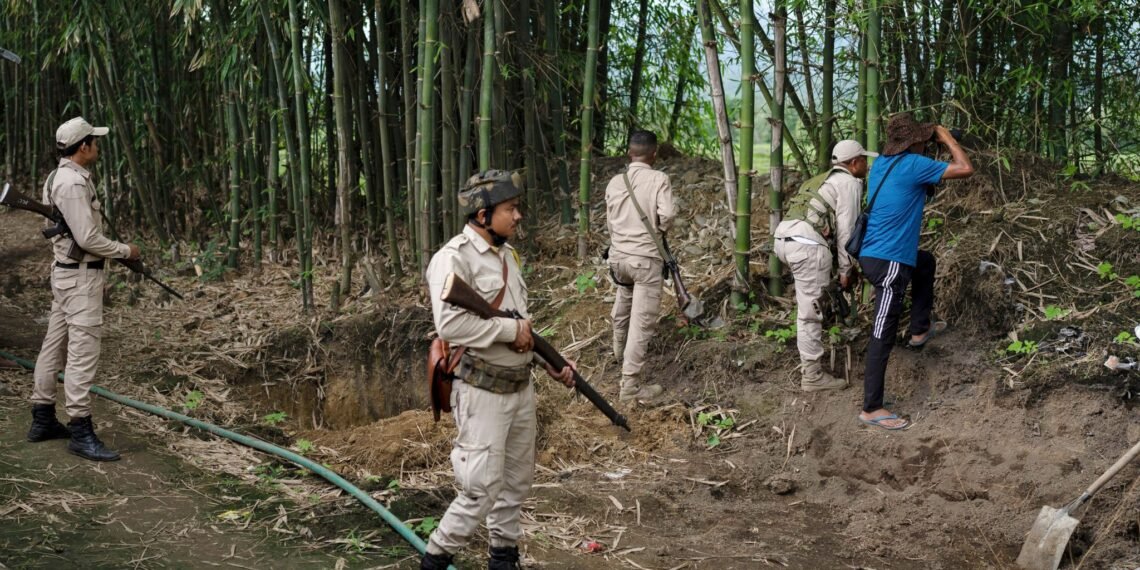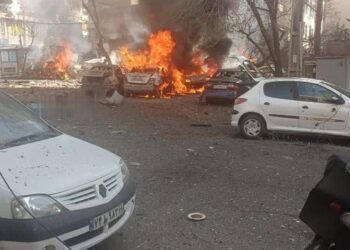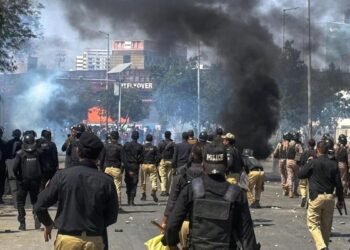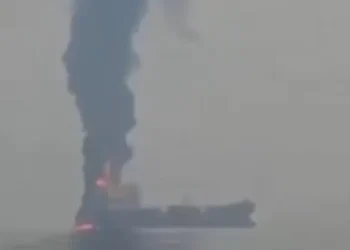Despite violence in valley districts, including militant ambushes, the Centre exempted them from AFSPA, while imposing heavy militarisation on tribal hills.
BY PC Bureau
Sept 26, 2025 — The Kuki Organization for Human Rights (KOHUR) has issued a scathing condemnation of the Ministry of Home Affairs’ (MHA) decision to extend the Armed Forces (Special Powers) Act (AFSPA) in Manipur for another six months, calling the move “discriminatory, biased, and an assault on constitutional equality.”
In a strongly worded press statement released on Friday, KOHUR accused the Central government of applying AFSPA selectively, shielding valley jurisdictions — despite being the “epicenter of violence” — while subjecting tribal hill districts to what it called “heavy-handed militarisation.”
READ: Assam Tribals Reject BJP, BPF Races Ahead in BTC Poll
“This selective and discriminatory application of AFSPA is emblematic of the Central Government’s policy of appeasement towards the dominant Meitei community. It violates the constitutional guarantee of equality before the law under Article 14 of the Constitution of India,” the statement read.
MHA Declares Most of Manipur a ‘Disturbed Area,’ Exempts 13 Police Stations https://t.co/6M8nIYlbDy #AFSPA #ManipurCrisis #Nagaland #ArunachalPradesh #NortheastIndia #SecurityVsRights
— POWER CORRIDORS (@power_corridors) September 26, 2025
Valley Violence, Yet AFSPA Exemptions
KOHUR pointed out that more than 5,000 firearms and large caches of ammunition had been looted from government armories in the valley. Yet, it argued, no meaningful accountability has been enforced in these areas. “Despite this collapse of order, the Central Government has perversely chosen to exempt the valley from AFSPA, rewarding impunity while punishing the already vulnerable tribal hill districts,” the group said.
The rights body also highlighted a recent ambush on Assam Rifles in the valley, which killed two jawans and injured five others, reportedly carried out by the valley-based People’s Liberation Army (PLA). According to KOHUR, this incident exposed the “dangerous fallacy” of exempting the valley. “If AFSPA were to be applied rationally and on security considerations alone, it is the valley that requires it, not the tribal hills,” the release argued.
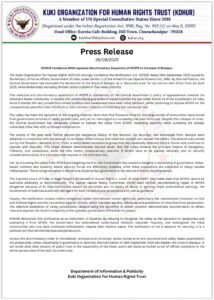
Accusation of Majoritarian Bias
By insulating the valley and targeting the hills, KOHUR said the government had created “a dangerous asymmetry in governance.” Valley-based militants, it alleged, are effectively shielded, while tribal populations continue to face militarisation and persecution. “This is not governance in the service of justice but governance in the service of ethnic majoritarianism,” the group charged.
READ: Analysis: Digital Natives, Real-World Action: How Gen Z is Reshaping India
The statement also cited past judicial rulings and recommendations, including the Supreme Court’s 1997 judgment in Naga People’s Movement of Human Rights v. Union of India and the 2005 Justice Jeevan Reddy Committee report, both of which questioned AFSPA’s legality and recommended its repeal. “In ignoring these authoritative warnings, the Government of India has acted with disregard for both constitutional protections and judicial guidance,” KOHUR said.
Going further, the organization claimed the extension of AFSPA violated India’s international obligations, including the International Covenant on Civil and Political Rights and the Convention Against Torture. “The selective exemption of valley jurisdictions — despite being the epicentre of armed violence — demonstrates discrimination on ethnic lines and exposes the State’s complicity in the systemic persecution of the Kuki-Zo people,” the release added.
Warning of Deepening Crisis
KOHUR concluded its statement with a warning that unless AFSPA is reviewed and accountability enforced in valley areas, the fresh extension will only worsen the conflict. “Unless this discriminatory order is immediately reviewed and corrected, the notification of 26th September 2025 will deepen the crisis in Manipur. It will erode what little remains of public trust in the impartiality of the State, and it will stand as further proof of official complicity in the ethnic persecution of the Kuki-Zo community,” it said.



